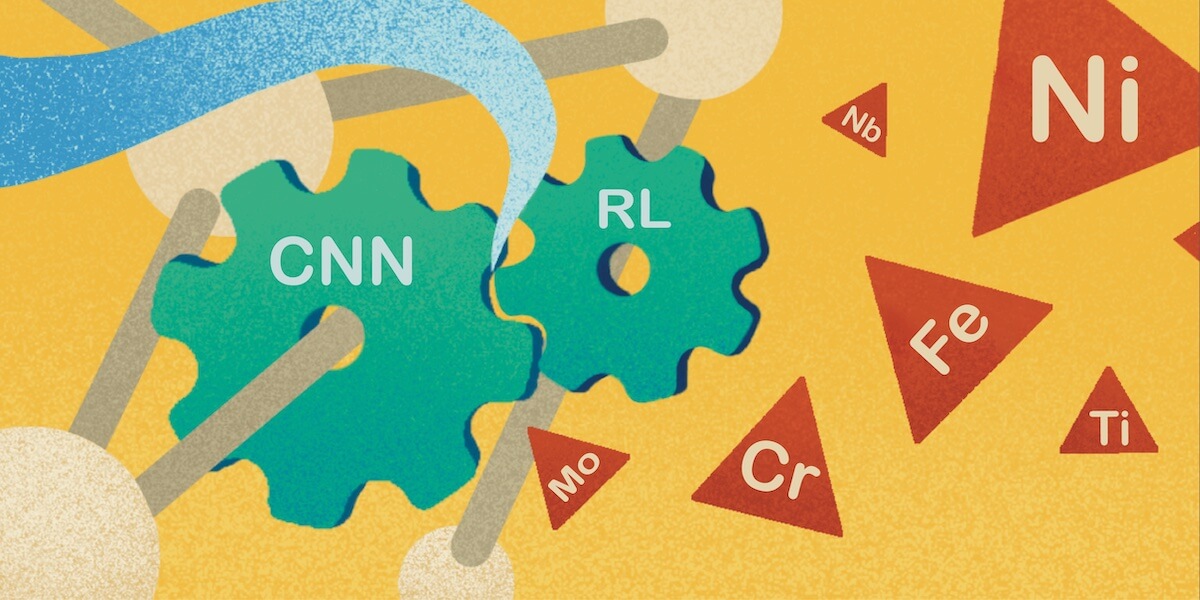
A new AI platform led by the Mork Family Department of Chemical Engineering and Materials Science will advance new materials discovery.
With technology advancing at an exponential pace, materials scientists must rapidly develop innovative new materials to enable the products of the future. A $2 million project led by USC Viterbi School of Engineering will build an AI platform to help design new futuristic superalloys — materials with unique microstructures — for advanced applications, including electronics, healthcare, energy, and transportation.
This award is part of a $72.5 million investment from the U.S. National Science Foundation under the Designing Materials to Revolutionize and Engineer our Future (DMREF) program, which will fund 37 new four-year projects across the nation.
The platform, known as DRAGONS (Data-driven Recursive AI-powered Generator of Optimized Nanostructured Superalloys) will be developed by a multidisciplinary team in the Mork Family Department of Chemical Engineering and Materials Science under the leadership of Department Chair and Arthur B. Freeman Professor Andrea Hodge and Assistant Professor Paulo Branicio.

Mork Family Department Chair and Arthur B. Freeman Professor Andrea Hodge.
The USC research team will develop the DRAGONS platform in collaboration with researchers from the University of California, Santa Barbara, Johns Hopkins University and the National Institute of Standards and Technology.
A material’s internal microstructure is invisible to the naked eye, existing at the nanoscale. Highly specific internal structures offer significant advantages for a material’s performance and behavior – for example, how the material responds to temperature, mechanical force, or electrical impulses.
However, the processes required to produce such unique materials with specialized microstructures are poorly understood. The project team will develop the DRAGONS platform to understand better how the production process can affect material microstructures, harnessing machine learning so scientists can have more nuanced control over the materials they produce.
DRAGONS will use predictive models to interpret the material microstructures that form under various processing conditions. This data will then be harnessed to generate processing instructions that can create highly customized structures. The work will be applied to the discovery of new nickel-based superalloys, which are essential in high-performance environments such as jet engines and can be expanded to applications that can enhance efficiency in power plants and advanced energy storage solutions.
Branicio said that the DRAGONS project could enable a new era of materials production and revolutionize materials science by harnessing AI’s predictive capabilities for better precision in the design and synthesis of materials. He said the platform would dramatically enhance material strength and efficiency, with significant positive impacts for various sectors such as aerospace and healthcare.

Assistant Professor Paulo Branicio
For example, healthcare applications such as implant production and drug delivery systems can make use of materials with microstructures tailored for biocompatibility and strength. Similarly, the energy sector requires high-performance materials that can enhance energy efficiency in power plants and improve energy storage solutions.
The new platform would also offer a significant boost to research and teaching within the Mork Family Department, with the research team hoping to attract new talent and encourage opportunities for interdisciplinary research and cross-institution collaborations.
“In terms of education, DRAGONS will enrich the curriculum, giving students practical experience with advanced materials and machine learning applications and potentially inspiring new interdisciplinary courses,” Branicio said. “This hands-on learning will better prepare students for current and upcoming scientific challenges at the interface between AI and materials science.”
Hodge said DRAGONS was a significant step in the Mork Family Department’s evolution and would be integral to developing innovative materials that are pivotal to the department’s research, touching on sustainability and energy.
“We stand at the brink of groundbreaking advancements driven by AI and high throughput data generation,” Hodge said.
Published on February 13th, 2024
Last updated on February 13th, 2024













